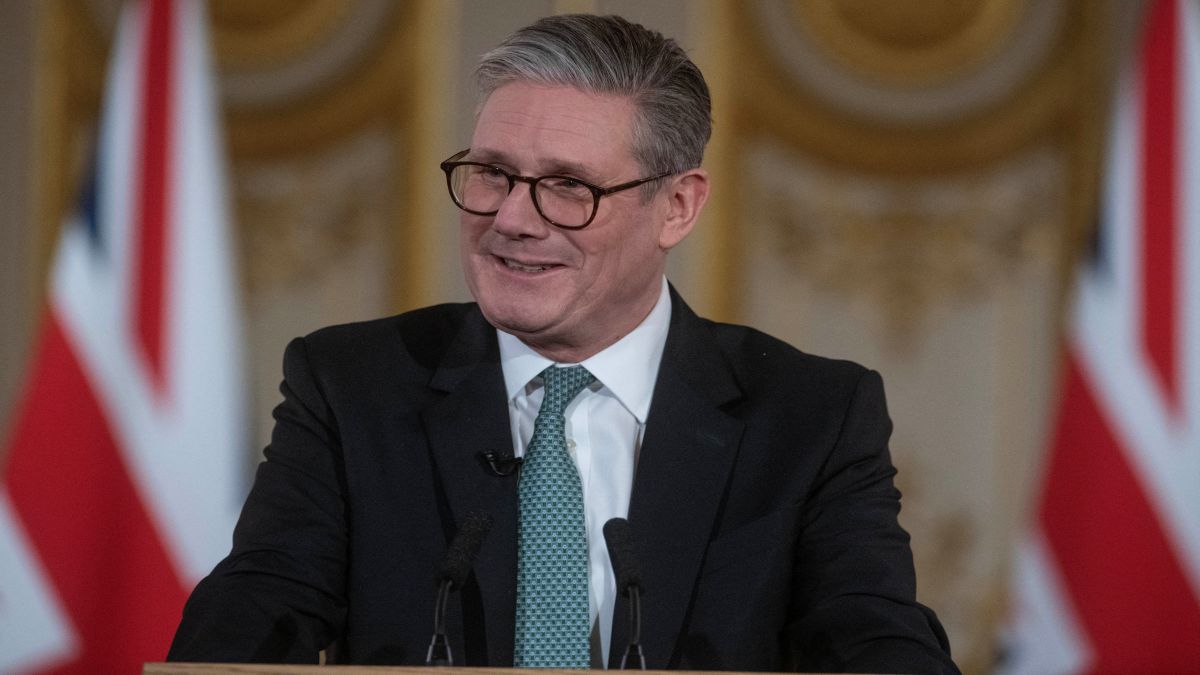A year after Labour’s landslide victory, living standards in the UK remain stagnant, with discretionary incomes falling 7.5% since Prime Minister Keir Starmer took office, a trend that is fuelling public discontent and giving political momentum to Nigel Farage’s populist Reform UK party.
According to a Bloomberg report, citing new data from Retail Economics, households endured a 4.2% drop in discretionary income in April amid a wave of tax increases and rising bills.
May offered no relief, marking the worst two-month stretch for consumer spending power since the energy crisis triggered by Russia’s 2022 invasion of Ukraine.
The sharp fall means households now have no more disposable income than they did in July 2024, when Labour swept to power. The impact has been especially severe on lower-income families, exacerbating existing financial pressures.
Further underlining the squeeze, separate analysis reveals a record number of Britons have taken on second jobs to make ends meet, while one in six workers is now struggling to pay monthly bills, added the report.
The latest figures shed light on growing political unrest in Britain, despite Prime Minister Keir Starmer’s claims that rising wages signal economic improvement.
Labour has slipped behind Reform UK in the polls, as the populist party gains support with promises of tax cuts and targeted aid for low-income households.
Impact Shorts
More ShortsWhile pay is rising at around 5%, outpacing 3.4% inflation, data from Retail Economics paints a grimmer picture, according to the Bloomberg report. It accounts for tax hikes and surging household bills often excluded from official inflation measures, showing real disposable incomes are under renewed pressure, added the report.
After a rebound in 2023 following peak inflation of 11.1%, households were hit hard again in an “awful April,” when food prices spiked and regulated costs — from council tax to energy and rail fares — jumped sharply.
“These unavoidable outgoings hit lower-income households the hardest and offset recent earnings gains,” Bloomberg quoted Nicholas Found, head of commercial content at Retail Economics, as saying.
For the bottom 40% of households, incomes remain below 2019 levels despite a nearly 7% increase to the minimum wage that took effect in April.
It suggests workers may keep demanding higher wages despite a weakening job market, keeping pay growth above what the Bank of England considers sustainable. While 2025’s inflation bump is driven by one-off factors, policymakers remain cautious about “second-round” effects and are signaling a slow path to rate cuts.
Stagnant living standards are fueling consumer caution. Lower-income households, hit hardest by rising costs, have little left after essentials, while wealthier Britons are saving more. Retail sales dropped sharply in May, marking the biggest fall since 2023 and contributing to another month of economic contraction.
A survey by Lancaster University’s Work Foundation found one in six workers are struggling to pay bills, with 40% lacking money for savings or holidays.
Less than half believe their wages are keeping up with the cost of living. As a result, more Britons — especially men — are taking on second jobs, which hit a record high after a 10% year-on-year jump, reported Bloomberg.
“Financial pressures are pushing people to work extra hours or find additional sources of income, often through apps that make it easy to pick up extra work but this can lead to unhealthy workloads,” Bloomberg quoted Alice Martin, head of research at the think tank, as saying.
“We are seeing similar trends in other countries such as the US,” Martin added.
Frozen income-tax thresholds are quietly eroding living standards by pushing more workers into higher tax brackets. Starmer has refused to rule out extending the freeze, as his government scrambles to raise revenue after reversing billions in planned welfare cuts — leaving Chancellor Rachel Reeves with a widening budget gap.
Originally set to end in 2028, the policy—introduced by the previous Conservative government—is now under review.
According to the report, citing Resolution Foundation, the resulting fiscal drag could wipe out a 2.5% real wage gain for workers just above the tax thresholds over the next three years. Some may even see real incomes fall further once rising council tax bills are factored in, it added.
With inputs from agencies
)